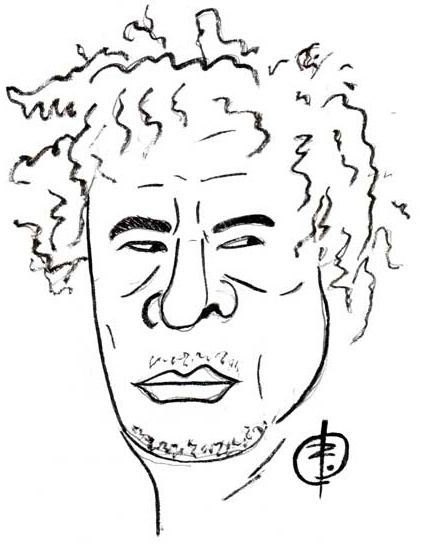A Special Relationship: Neocon Ties to Gaddafi
The neocons and the rehabilitation of the Mad Dog of the Middle East.
Correction: We were contacted by Richard Perle, who stated that he was never an adviser to Gaddafi. The National Interest always tries to achieve the highest standards, including in individual blogs, and regrets the inaccuracy.
One of the central tenets of neoconservatism, in its current incarnation, has been to espouse democratization and opposition to tyranny. Richard Perle, for example, co-authored a book called An End To Evil. In it, he laid out what the jacket flap calls a "bold program to defend America--and to win the war on terror."
But as Laura Rozen, among others, has reported in Politico, it seems that none other than Perle has been functioning, in the past several years, as an adviser to Col. Gaddafi. By any measure, Gaddafi is at least as terrible a despot as Saddam Hussein, the man whom neocons said it was essential to depose from power--and the ruler whom Ronald Reagan called the "mad dog" of the Middle East. That was then.
According to Rozen,
One of the more unlikely figures to have advised a firm which has worked to burnish Libya's image and grow its economy is not registered with the Justice Department. Prominent neoconservative Richard Perle, the former Reagan-era Defense Department official and George W. Bush-era chairman of the Defense Policy Board, traveled to Libya twice in 2006 to meet with Qadhafi, and afterward briefed Vice President Dick Cheney on his visits, according to documents released by a Libyan opposition group in 2009.
 The firm is based in Boston and called the Monitor Group. It is apparently linked to a number of professors at the Harvard Business School. The idea was to bring prominent academics to Libya to try and polish up the regime's image. According to Rozen, the Monitor Group documents state that thinkers such as Francis Fukuyama and Bernard Lewis were recruited to meet with Gaddafi. The story was first released by members of the Libyan opposition, who have sought to highlight the extent to which the West has colluded with the Gaddafi regime. Gaddafi's son Saif al-Islam also visited Harvard University under the auspices of the Monitor Group.
The firm is based in Boston and called the Monitor Group. It is apparently linked to a number of professors at the Harvard Business School. The idea was to bring prominent academics to Libya to try and polish up the regime's image. According to Rozen, the Monitor Group documents state that thinkers such as Francis Fukuyama and Bernard Lewis were recruited to meet with Gaddafi. The story was first released by members of the Libyan opposition, who have sought to highlight the extent to which the West has colluded with the Gaddafi regime. Gaddafi's son Saif al-Islam also visited Harvard University under the auspices of the Monitor Group.
As I've previously written, the efforts of the Bush administration to reach out to Gaddafi made sense. Former Bush national security aide and neocon Elliot Abrams makes a persuasive case that it was necessary to cut a deal with the devil. In an act of realpolitik, the administration secured Gadaffi's nuclear materials, a major success.
But seeking to improve Gaddafi's image is another matter. Perle should explain what, precisely, he was trying to accomplish in Libya. What did he and Gaddafi talk about the two times that they met in Libya? What did Perle tell former vice-president Cheney when he briefed him about visiting Gaddafi?
As it stands, his actions appear dubious in the extreme. America did not need a special relationship with the man who presided over the Lockerbie bombing and numerous other heinous acts. Some reputations are irredeemable, and Gaddafi's, as he tries to send his country up in flames, as an act of personal vanity, before he is finally deposed from power, is one of them.
Image by Strassengalerie
